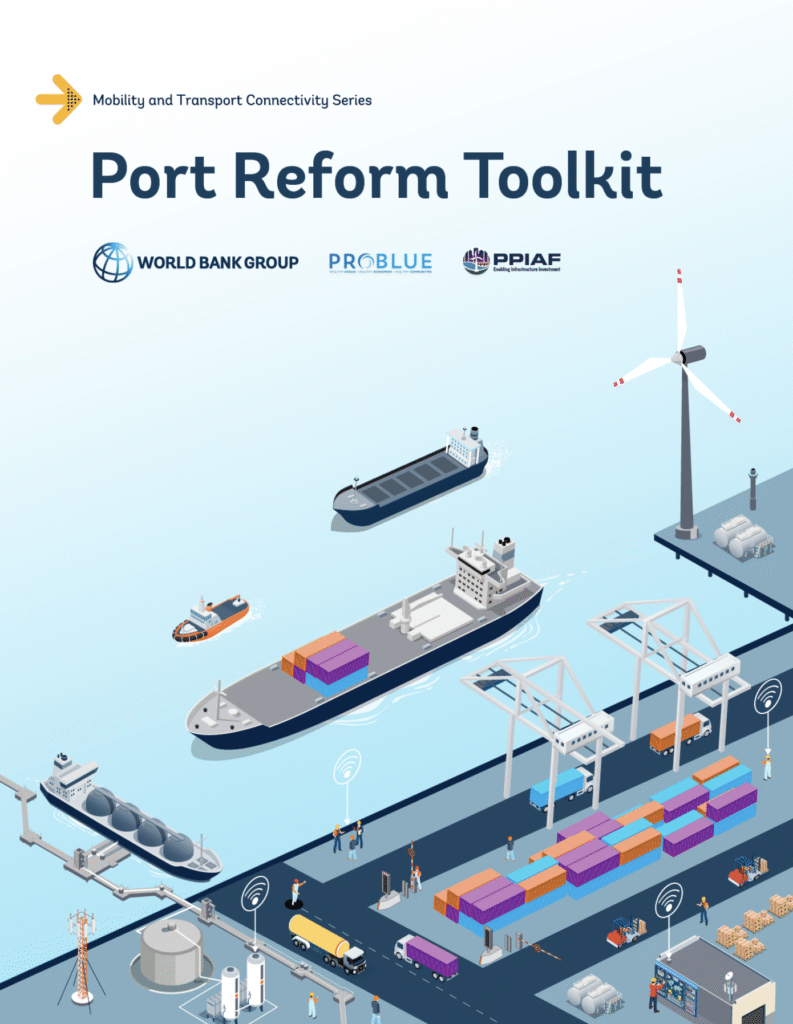The World Bank published the third edition of the Port Reform Toolkit – highlighting, among others the transformation of ports in recent years and the emerging issues to address.

The enhanced Port Reform Toolkit 3.0 begins by analysing global trends and their impact on ports. Module 2 introduces concepts of change management.
Then, in eight substantive modules, we explore port governance, privatisation, regulation, finance, and labour arrangements, followed by new modules that are now at the core of future-proofing ports: digitalisation, environmental sustainability, and the port-city interface.
The first edition of the WBPRTK (World Bank Port Reform Toolkit) was published at the beginning of the 21st century, and the second one in 2007, with both ones serving the world port industry as manuals towards reforms of port governance and the respective search for the best structures and strategies possible.
Several PortEeconomics members are among the contributors to this third edition. Listed among those that contributed with authorship and expertise are Mary R Brooks, Peter de Langen, Michael Dooms, Jason Monios, Thanos Pallis, Jean-Paul Rodrigue, Patrick Verhoeven and Gordon Wilmsmeier,
Per Jan Hoffmann, who leads the World Bank work in maritime and port issues, “In coming months, [World Bank] will expand the Port Reform Toolkit with on-line and in-person dissemination, as well as an AI interface that will help you ask your questions.”
You might reach and download the full report, or any of the individual models, here: https://lnkd.in/e3hCZ3Yd












